










By EARYEL BOWLEG Tribune Staff Reporter
ebowleg@tribunemedia.net
AN Abaco mother hopes the family of 12-year-old Montana Ferguson can one day forgive her after he died in a fire at her Crown Haven home. Montana, a close friend of her son, was spending the weekend — his first sleepover at the Scott’s house — when flames ripped through the residence around 3am on
Monday. Oceananna Scott, 41, said she was not at home when the blaze began but rushed back after being called. “I just looked around and hollered for everybody,” she told The Tribune. She said she was able to find her 23-year-old daughter and son, but not Montana. She could not explain why the boy, who slept alongside his friend, didn’t make it out of the home.
Hield’s sisters c H astised for disorderly conduct
By DENISE MAYCOCK Tribune Freeport Reporter
dmaycock@tribunemedia.net
TWO sisters of Bahamian NBA star Buddy Hield were admonished by a magistrate yesterday after admitting charges of disorderly behaviour and fighting following a brawl at Grand Bahama International Airport two weeks ago. Jalisa Hield, 35, an entrepreneur, and her sister Jaleta Hield, 31, a nurse, pleaded guilty before BG cse n ational avera G e

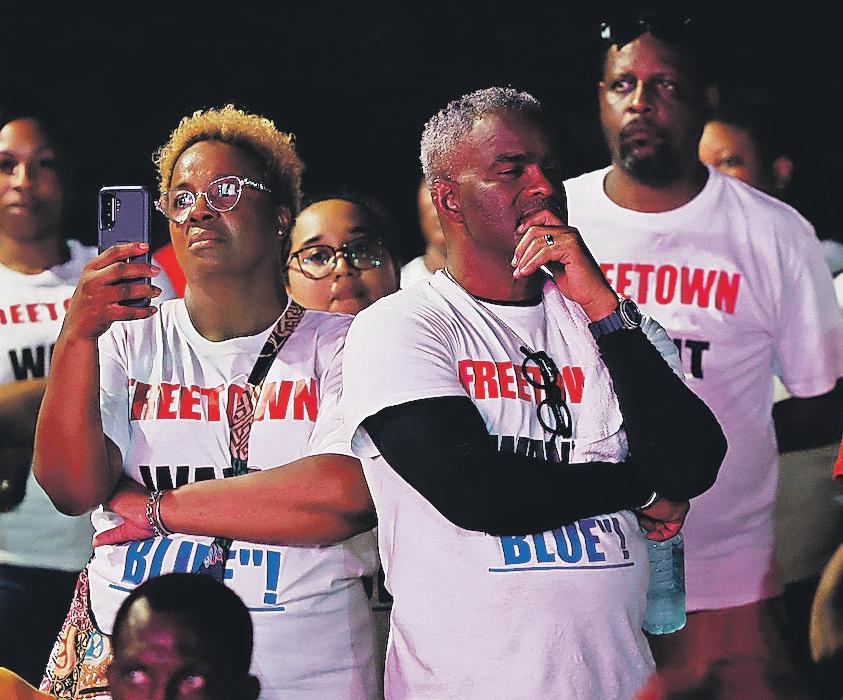
By EARYEL BOWLEG Tribune Staff Reporter ebowleg@tribunemedia.net
By LYNAIRE MUNNINGS Tribune Staff Reporter lmunnings@tribunemedia.net
OF the 1,684 candidates who sat five or more BGCSE subjects this year, 627 — 37.2 percent — earned at least five C grades or better, while 970, or 57.6 percent, managed five subjects at grade D or above. As a share of all 6,103 registrants, the numbers drop
to about ten to 16 percent, though officials cautioned this understates achievement since many students take exams over multiple sittings. Fewer students held steady at C and D grades across subjects, while more slipped into the weaker E, F and U bands. The overall results again place national
FREE National Movement ratified seven more candidates last night as the party continued filling its slate ahead of the next general election. The event confirmed several familiar political aspirants and underscored shifts in key constituencies.
Among those ratified were former Bain and Grants Town MP Travis Robinson for Fort Charlotte, Heather McDonald for Englerston, attorney Serpent Rolle for Tall Pines,
and businesswoman Trevania Clarke-Hall. Four of the seven ratified were women. FNM Leader Michael Pintard said the party had elevated more than 100 potential candidates before making its final choices.
“Some may question why some went where they went,” he told supporters.
“I’m here to tell you, we do not want to disadvantage the next generation. We want to give them a legitimate shot at being successful.”
Mr Pintard acknowledged dissatisfaction among

some hopefuls.
“We regret that we could not embrace all of those who desire to carry the franchise and the banner of the party, but we assure you, there are many different ways to serve this country, other than just on the front line at this time,” he said. “We believe that the mission we are on is bigger than the personal ambitions that each of us may have.”
Senator Michela BarnettEllis was confirmed as the candidate for Killarney, a constituency long held by the FNM. Party officials announced in April that former Prime Minister Dr Hubert Minnis would not be renominated.
Dr Minnis has since said he intends to run. Some wonder if his participation could split the FNM’s base.
Senator Barnett-Ellis, however, said she is focused on building support.
“I’m incredibly humbled by this honour to carry on the torch, carry on the legacy of great FNM representation in Killarney so I look forward to the opportunity,” she said. “I look forward to meeting people, reaching out, hearing what their concerns are, and firing the PLP.”
She also said Killarney is one of the constituencies that should be split to ensure better voter representation. “Killarney and Golden Isles are two very, very large constituencies with over 7000 voters, and so it’s important for people to get true representation, for those constituencies to be made smaller, so that those members of parliament that we can reach out to them and meet their needs,” she said.
Lincoln Deal received the Freetown nomination despite previously wanting the Killarney nomination. He said the assignment was not about geography but service.
“It’s about serving the people, their needs, whether you live in the east, the west or in the islands, our concerns are still the same,” he said. “We want good representation, and we want to build better communities, and you can do that wherever you are planted.”
Supporters of Andrew “Blue” Johnson, another Freetown hopeful, were vocal during the ratification. Mr Johnson said while he remains a loyal FNM, his supporters would not allow him to endorse anyone else if he was not chosen.
Mr Deal downplayed tensions. “It was a fair expression of what he thinks should have happened,” he said. “I look forward to hopefully working with Blue. I think ultimately we both have an interest in ensuring that the people of Freetown have good representation. I look forward to reaching out and seeing how best we can collaborate and work together.”
Mr Pintard also dismissed suggestions that the selection process could hurt the party. “We’re happy to track any and everybody. God bless them, looking for their vote on election day,” he said.
Addressing Freetown directly, he added: “Freetown, you have many talented people that can lead, and have led. We are adding to your number. We are working with you. Let’s not divide the vote in Freetown. We need Wayne Munroe gone.”
He expressed no concern that choosing Ms BarnettEllis over Dr Minnis might damage the FNM’s prospects in Killarney. Also ratified was funeral director Denalee PennMackey for Southern Shores. Mrs Penn-Mackey previously sought the Progressive Liberal Party’s nomination in North Abaco during the last election. Her candidacy sets up a potential clash with ZNS general manager Clint Watson, who is eyeing the PLP’s nomination for the same seat.
Mrs Penn-Mackey used her speech to send him a message.
“Where is ZNS? I want ZNS to zoom this camera in. Zoom it in right here,” she said.
“I heard through the grapevine that the PLP wants to send the general manager from ZNS. I want him to know this: this train has left the station. This train will not derail. I want him to know that at the end of the journey there is a big, bold sign that says victory.


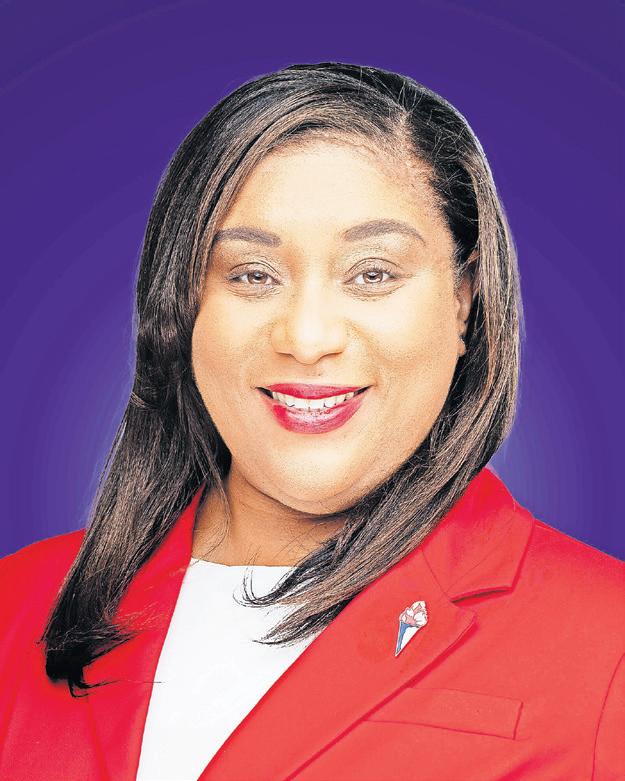


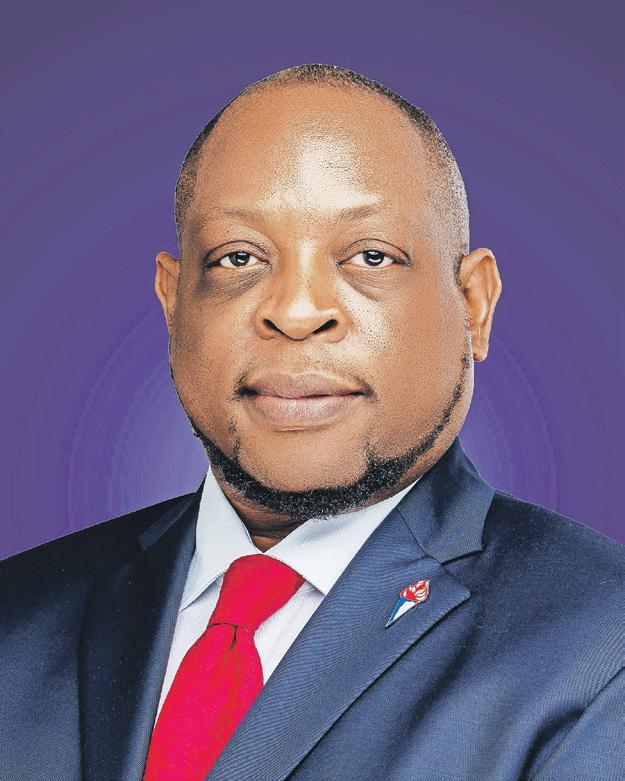

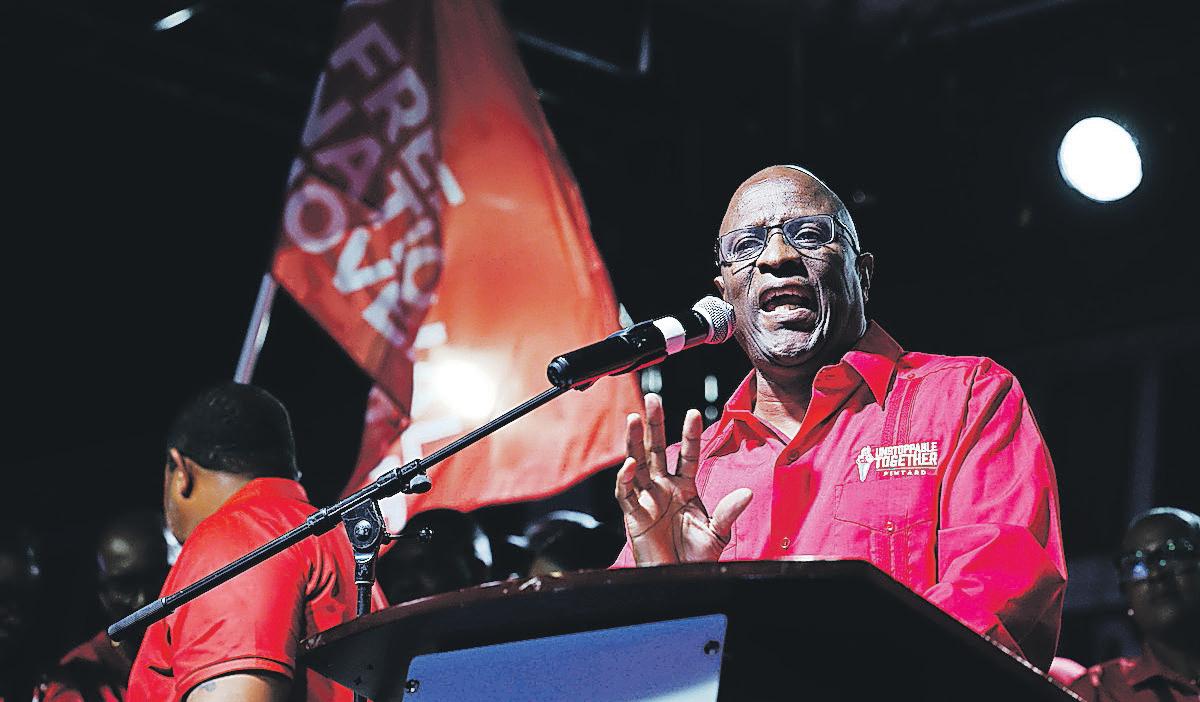





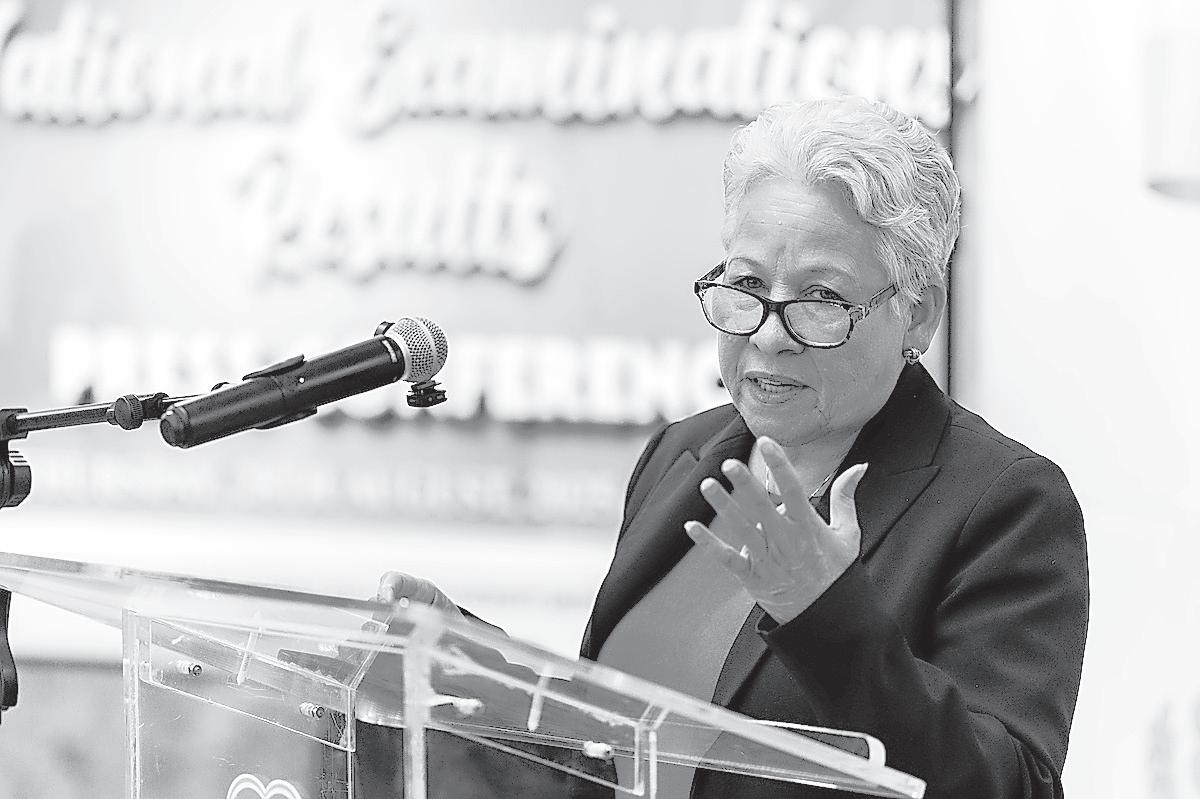
performance close to the so-called “D average” that has long dominated public discussion, though officials say that label paints an incomplete picture of achievement.
Just 375 candidates —
22.3 percent of those sitting five or more subjects, or about six percent of all registrants — earned at least a C in Mathematics, English and a Science, one of the most widely recognised benchmarks of academic readiness.
Mathematics once again proved a stumbling block.
Fewer than half of candidates achieved grades A–D in the subject this year, placing it alongside Biology and Bookkeeping & Accounts as areas where most students struggled. English Language, by contrast, ranked among the stronger performers, with the cohort doing best in creative and practical subjects such as Art & Design, Food & Nutrition and Music.
Overall, 83.4 percent of all BGCSE grades fell between A and E, a result officials described as a recurring accomplishment. But unlike in past years,
the report gave no subjectby-subject breakdown showing how many candidates earned at least a D in core exams like Maths or English, and officials did not take questions from the press when releasing the results.
The data also show that although more students registered for BGCSE this year — 6,103, up 2.9 percent from 2024 — the total number of grades awarded dipped slightly, from 20,616 to 20,595. That means candidates on average sat fewer subjects than before.
By gender, both males and females slipped at C and D, but males saw a small rise at grade A while females fell. At the bottom end, both sexes recorded increases at E, F and U, a sign of continued difficulty at the weakest bands.
Several schools also recorded GPA improvements compared to last year. A.F. Adderley, D.W. Davis, Government High and C.C. Sweeting were among those showing gains in New Providence, while Eight Mile Rock High, Tabernacle Baptist, Central Andros High, Queen’s College, Aquinas College and St Augustine’s College also posted improvements.
By LYNAIRE MUNNINGS
Tribune Staff Reporter lmunnings@tribunemedia.net
OF the 3,392 candidates who sat five or more BJC subjects this year, 1,316 — 38.8 percent — earned at least five C grades or better, while 1,788, or 52.7 percent, managed five subjects at grade D or above. As a share of all 10,478 registrants, those figures fall to roughly 13 to 17 percent, though officials cautioned this understates achievement since many students take exams over multiple sittings.
Performance at the middle bands held up: both males and females ticked up at C, and males rose at D while females dipped slightly. At the lower end, both sexes rose at E; females rose at G and U while males fell — a mixed picture.
Just 1,251 candidates — 36.9 percent of those sitting five or more subjects, or about 12 percent
of all registrants — earned at least a C in Mathematics, English and a Science, a core benchmark commonly used for readiness.
Overall quality remained broad: 87.22 percent of all BJC grades were between A and F, and no subject fell below 50 percent at grades A–D. English Language and Mathematics were again the most heavily subscribed, with French and Craft Study gaining entrants this year while Family & Consumer Science declined.
Participation eased slightly to 10,478 candidates (down 2.94 percent from 2024), and the number of grades awarded fell more sharply, from 39,455 to 37,220 — a sign candidates, on average, sat fewer subjects. Several centres posted GPA improvements compared to last year, including a mix of government and independent schools in New Providence and the Family Islands.


A FREE family-friendly event to promote maritime safety, rescue awareness, and community engagement hosted by The Bahamas Air Sea Rescue Association (BASRA), in partnership with the United States Coast Guard (USCG) and the Royal Bahamas Defence Force (RBDF), will be held on September 6, from 1:00
PM to 4:00
PM at Fort Montagu Park. Under the theme “Safety at Sea & Continuing the Legacy,” the event aims to educate the public on maritime safety, showcase rescue operations, and inspire volunteerism in support of BASRA’s lifesaving mission. Event highlights include interactive exhibits and demonstrations; US Coast Guard helicopter rescue demonstration; RBDF Sea Training Department; life-saving equipment demonstrations; and familyfriendly activities.
BASRA Director Cameron Gibson: “This event is a celebration of our shared commitment to maritime safety and the legacy of rescue services in The Bahamas. We invite the public to come learn, engage, and discover how they can contribute to saving lives at sea.”
BASRA is a non-profit volunteer organisation dedicated to maritime search and rescue, safety education, and emergency response coordination.

FORGIVE from page one
She said both of her children are too traumatised to talk about what they saw. “Every time I mention it, they start crying, so I just don’t want to make it worse,” she said.
The tragedy, she added, has left her unable to eat or sleep. Her son, who is still coughing heavily from smoke inhalation, is struggling with the loss, compounded by the recent death of his father.
In addition to the grief, the family is also facing the loss of what they considered their “dream home,” which they moved into just a year ago after saving up. The house was uninsured.
Montana and Ms Scott’s son had been friends for about two years, bonding over fishing, diving and basketball.
Ms Scott said she has tried to reach out to the boy’s relatives but they appeared to be too angry and traumatised to talk to her.
Meanwhile, Montana’s family said they remain hurt and frustrated by unanswered questions.
His aunt, Jacqueline Duncombe, said the boy’s mother has not heard directly from Ms Scott.
“We don’t want to hear from her daughter,” Ms Duncombe told The Tribune . “My sister wanted to hear from her personally. She sent her daughter to the house and the daughter came down,
pretending to cry, then lashing out.”
She added that the family was unsettled by what she described as conflicting accounts from Ms Scott’s daughter.
“First, she told me she got up to go pee, then she see the fire on the wall, and she tried outing it, and she ran out of the house,” she said. “Then she tell me that she wake up her brother to help her out the fire. The story just not adding up. It’s not making any sense.”
Ms Duncombe said what hurts the most is knowing how well her sister cared for Montana when he visited her home.
“My sister make sure that he is straight, he is happy, that he eat,” she said. “She take care of him like he’s her own, and she takes him back home safe and sound.”
She also questioned why Ms Scott did not tell Montana’s mother immediately about the fire.
“Why they couldn’t give her the relief, to ease some of the tension and give her a phone call to say that ‘I know sad news, but our house is burning down and your son is stuck?’ You didn’t even give her that,” she said.
Relatives described Montana’s mother as “heartbroken” and “empty inside;” she has not been able to view her son’s remains and is still waiting to be told when they will be released.
Ms Duncombe said she shared a close bond with her nephew and recalled


her last memory of him, which was from Saturday when he visited her home. “I hugged him, and I usually take my hand and rub his hair,” she said. “I always told him he had beautiful hair and I kissed him, and he smiled. He was so happy. Every time I sit in my front room chair, that’s all I could see is him just walking in here with that beautiful smile.”

Sir Ronald Sanders awarded Ukraine’s Order of Merit
AnTIguA and Barbuda’s Ambassador to the united States, Sir Ronald Sanders, a Tribune columnist, will receive ukraine’s Order of Merit for his advocacy in defence of the country’s sovereignty, according to a statement from the Embassy of Antigua and Barbuda. The Embassy said ukrainian President Volodymyr Zelensky signed the decree on August 24, recognising Sir Ronald “for a significant contribution to strengthening interstate cooperation, supporting the state sovereignty and territorial integrity of ukraine.” The award will be presented at a ceremony in Washington, DC, in September.
According to the release, Sir Ronald has championed ukraine’s case in international bodies, including the Organization of American States, where he piloted resolutions and declarations in support of the country. He has also pressed for global

backing of the ukrainian people in his syndicated column.
“I am greatly honoured by the award from President Zelensky,” Sir Ronald said. “I regard it as an award not only to me but to my government in Antigua and Barbuda for its stance in standing up for the principles enshrined in the united nations Charter and international law.” He added: “The courage and resilience of the ukrainian people against superior odds to maintain their autonomy and identity is an example to all small states that are confronted with unfairness and injustice.”
Sir Ronald’s column can be read in The Tribune on Mondays.

DISORDERLY from page one
Magistrate Charlton Smith at Freeport Magistrate’s Court. He granted both an absolute discharge, and cautioned them against similar conduct in the future.
Magistrate Smith warned the sisters about the potential fallout for their family name.
“I think I heard you are maybe Buddy Hield’s sisters,” he said. They confirmed they were.
“He would not want the local or international media to know that this is going on with his family,”
said the magistrate. “He recently came home to give back and do something positive. He would not want his reputation to be overshadowed by this. It is important how you carry yourself whether that’s your brother or not. But it is your own reputations you are sullying.”
The fight was captured on video and widely shared online. It showed the women punching and pulling each other’s hair as bystanders looked on. At one point, a man pulled one woman away while others tried to separate the rest. In the footage, one of the women is heard
shouting: “F**king stupid to approach me.”
Magistrate Smith added: “It is unfortunate that three persons dressed up and looking good; what is the sense of looking good with bad character? What is the sense of looking good, all the nice pretty hair, jewellry, and clothes, and you carry yourself like that?”
He told the sisters their dispute should not have spilled into a public space, disrupting travellers and children.
“You are 35 and 31 years old. You are grown women,” he said. “You should know better,” he stressed.
Asked what they had learned, Jalisa, an entrepreneur, replied: “It will never happen again. I will walk away.” Jaleta, a nurse, also promised she would walk away in the future.
The magistrate added: “I trust this has been a valuable lesson. Do not find yourselves in similar circumstances again.”
Police said the incident happened around 11.20am on August 5. Officers were called to the airport about a fight, and later arrested the sisters, who were interviewed under caution before being charged.
A third woman,
35-year-old Donal Coakley, was also charged with fighting but pleaded not guilty. Prosecutors told the court that Coakley said one of the sisters put a phone to her face, and when she knocked it away, the women attacked her.
While the Hield sisters did not accept the prosecution’s version of events in full, their lawyer, Tashana Wilson, said they admitted to being involved in an altercation that disrupted the public. She argued the women, who have no previous convictions, wanted to avoid wasting the court’s time.
“This is something that
was brewing I guess from a relationship from a domestic/civil side of it,” she said. “A phone call came in and Ms Hield did approach Ms Coakley and boxed the phone out of her hand and there was an altercation.
“This incident went viral and even aired on ZNS twice. The sisters are taking responsibility for what happened.”
Meanwhile, Coakley, an accounts worker at the Rand Memorial Hospital, confirmed she would proceed with her case. She was granted $500 bail, and her matter was adjourned to September 8.
By JADE RUSSELL Tribune Staff Reporter
jrussell@tribunmedia.net
A 42-YeAR-OLD man was granted conditional discharge yesterday after pleading guilty to resisting
arrest, disorderly conduct, and using obscene language toward a police officer.
Jason Nottage appeared before Senior Magistrate Kendra Kelly-Burrows. He was charged with two counts of disorderly behaviour, two
counts of using obscene language, one count of resisting arrest, one count of assaulting a police officer, and one count of making threats of death.
The incident occurred on August 26 at 2am on Wulff
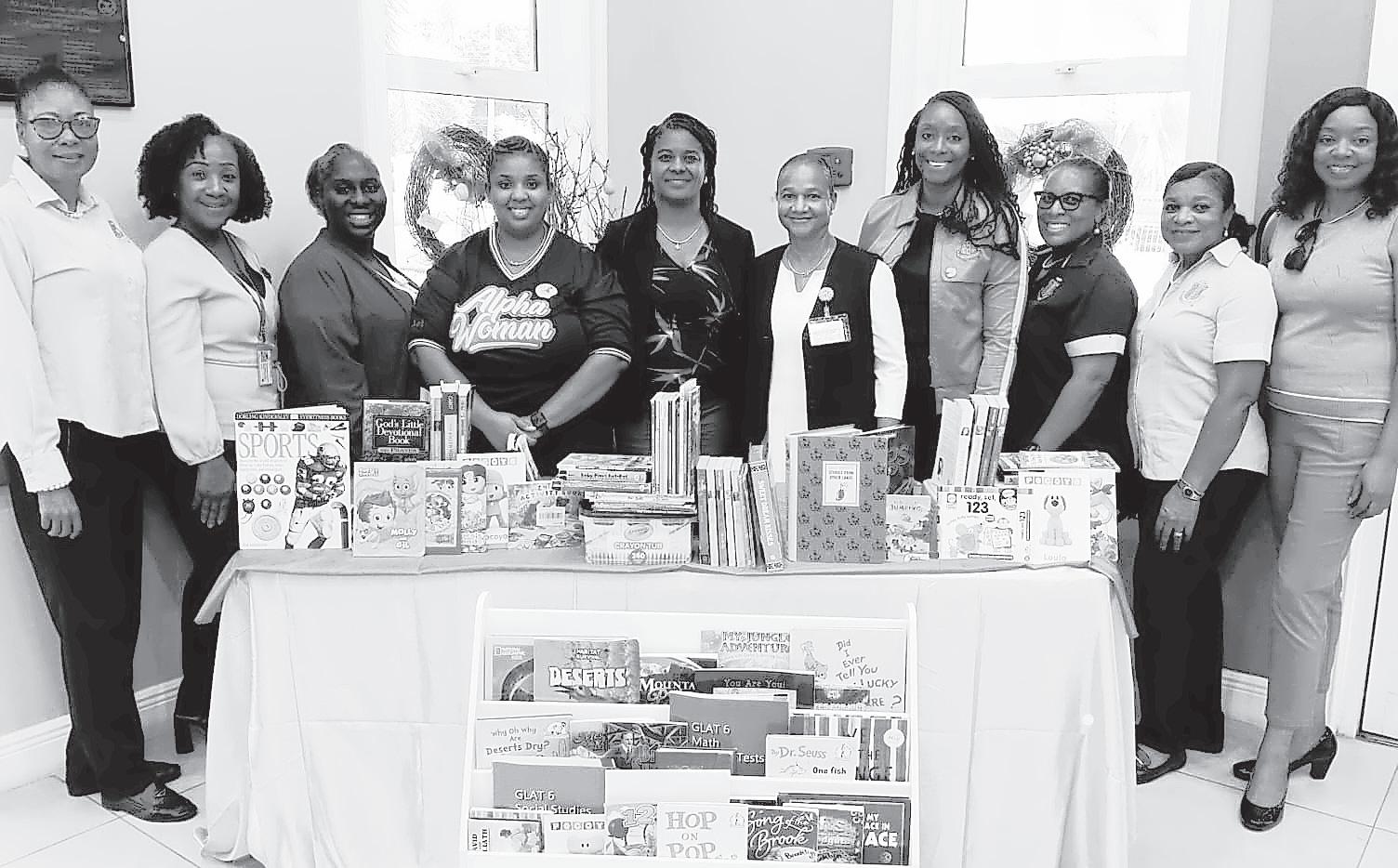
Sasha Rolle, and next to her is Sherone Singh, acting deputy hospital administrator. Also seen are staff at the Grand Bahama Health Services and several chapter members.
By DENISE MAYCOCK Tribune Staff Reporter
dmaycock@tribunemedia.net
ALPHA Kappa Alpha
Sorority, Incorporated, Pi
Upsilon Omega Chapter has donated books and learning materials to help restore the Pediatric Ward at the Rand Memorial Hospital, which lost everything during Hurricane Dorian.
The donation, presented to hospital officials on Thursday, included 115 reading books, 24 activity books, five puzzles, 12 sensory card sets, a tub of crayons, and a bookshelf.
Sherone Singh, acting deputy hospital administrator, expressed gratitude on behalf of the Grand Bahama Health Services (GBHS).
“We want to thank you for your donation on behalf of our executive management team, GBHS, and the staff and patients
of the Pediatric Ward,” Ms Singh said. “I know the patients will be very happy when they come into the ward and see these books. It will put a smile on their faces and give them something meaningful to do during their stay.”
Chapter President Sasha Rolle said the initiative is part of the sorority’s Uplift Our Local Community program, with a focus on literacy.
“We know that so many books and resources were destroyed during Hurricane Dorian, and when children come to the ward, they often have very little to engage them,” Ms Rolle said. “Too often, we rely on tablets to keep them busy, but our goal is to encourage children and young people to rediscover the joy of reading.”
She explained that the literacy initiative began last year with a book
collection drive among members.
“One of our members had extra books she wanted to give away, and that sparked the idea,” Ms Rolle said. “We asked our membership if they would contribute, and the response was overwhelming. This donation is the result of that collective effort, and we’re proud to know it will brighten the lives of children in the hospital.”
Rashema Ingraham, 1st Vice President and Program Chair, added that the project reflects the chapter’s mission to uplift the local community in practical and lasting ways.
“The addition of books will help make the ward feel more inviting, stimulating, and joyful for young patients,” she said. “This is what uplifting our community looks like in action,” she said.
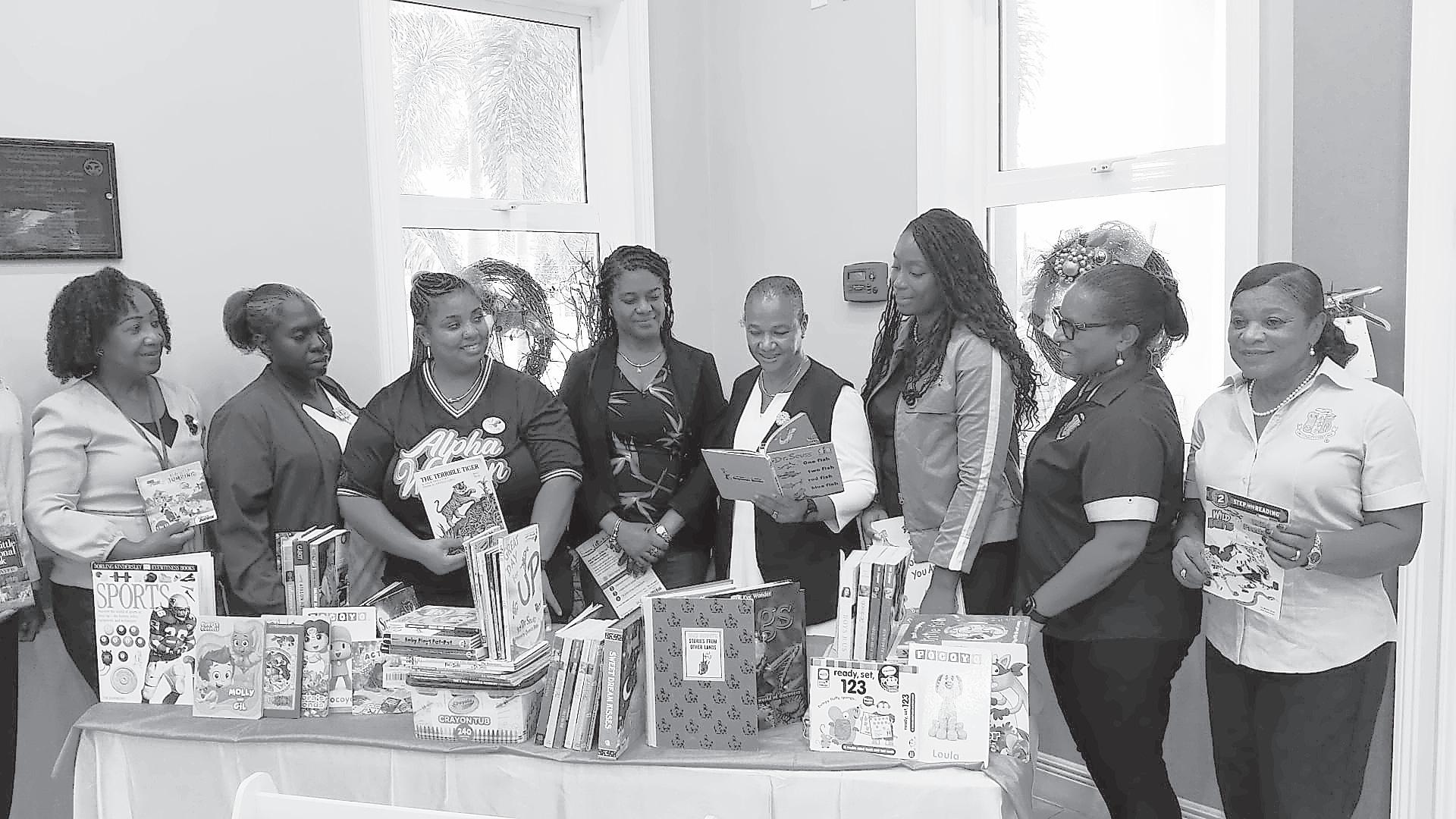
Road. Mr Nottage reportedly used obscene language, causing annoyance to PC 4715 Blatch, and allegedly assaulted the officer while he was performing his duties. He was also charged with disorderly behaviour at the Wulff Road police station
and with threatening PC 4547 Rahming with death, intending to cause fear.
An additional charge of possession of forged currency was withdrawn.
Mr Nottage pleaded guilty to the two counts of disorderly behaviour and
obscene language and was sentenced to three months’ probation. For resisting arrest, he pleaded guilty and received six months’ probation.
If he defaults on the probation, he could face three months in prison.


NULLIUS ADDICTUS JURARE IN VERBA MAGISTRI
“Being Bound to Swear to The Dogmas of No Master”
LEON E. H. DUPUCH
Publisher/Editor 1903-1914
SIR ETIENNE DUPUCH, Kt., O.B.E., K.M., K.C.S.G., (Hon.) LL.D., D.Litt .
Publisher/Editor 1919-1972
Contributing Editor 1972-1991
RT HON EILEEN DUPUCH CARRON, C.M.G., M.S., B.A., LL.B.
Publisher/Editor 1972-
Published daily Monday to Friday
Shirley & Deveaux Streets, Nassau, Bahamas N3207
TELEPHONES
News & General Information
(242) 502-2350
Advertising Manager (242) 502-2394
Circulation Department (242) 502-2386
Nassau fax (242) 328-2398
Freeport, Grand Bahama (242)-352-6608
Freeport fax (242) 352-9348
WEBSITE, TWITTER & FACEBOOK
www.tribune242.com

@tribune242

Three lessons we learned from Hurricane
TweNTy years after Hurricane Katrina reshaped American emergency management, its lessons remain crucial. As an expert in crisis response, I believe revisiting Katrina’s disaster highlights the importance of avoiding past mistakes.
On 29 August 2005, Katrina struck near New Orleans, breaching levees and flooding 80% of the city. Residents were trapped in rising waters or forced to evacuate, often too late. The storm resulted in nearly 1,400 deaths and damages exceeding US$100 billion (£75 billion today).
while many heroes responded bravely, Katrina exposed serious failures at all government levels. Communication broke down, aid was delayed, and the chaos in the Superdome—where 16,000 evacuees faced failing generators, security problems, and unsanitary conditions—highlighted the need for better planning.
Three key lessons from Katrina are especially relevant today.
First, emergency response depends on the weakest link.
FeMA was criticised heavily, but effective disaster management requires coordinated efforts across all levels of government. Delays in federal approval—due to tense federal–state relations—and poor decisions, like postponing a mandatory evacuation, cost lives. Damaged vehicles and broken communication left officials flying blind, delaying aid. Today, social media and misinformation make cooperation even
more challenging; strong local-federal partnerships are critical. second, no one should be leF t behind.
Katrina exposed vulnerabilities of low-income, elderly, and ill residents who couldn’t evacuate and faced terrible conditions. In response, FeMA’s “whole community” approach now emphasises inclusive planning, accessible shelters, and culturally sensitive information. However, recent moves against diversity, equity, and inclusion threaten these gains. The disaster reminded us that protecting vulnerable populations remains a national priority. third, proFessional leadership matters.
FeMA’s response was hampered by the inexperience of Administrator Michael Brown, who lacked disaster management expertise. The Post-Katrina reforms mandated that FeMA leaders have relevant experience, but recent appointments often involve acting administrators without necessary qualifications. Systems like the National Incident Management System aim to improve coordination, but success depends on skilled leadership at all levels. while we have learned from Katrina, political changes, staff turnover, and complacency threaten to undo progress. The key to improved disaster resilience lies in preparedness, inclusive planning, and professional leadership—lessons we cannot afford to forget.
The Conversation
EDITOR, The Tribune, wHIle we amp up for a general election in the coming year, it is easy to get caught up in the backand-forth between political rivals. It makes for good entertainment, right? Sadly, it is not entertainment, but a very serious matter. The petty bickering and barbs between politicians may be amusing, but they solve none of the issues we face as a country. As we approach the anniversary of Hurricane Dorian, one of the most significant disasters in our country’s history, we are still existing in a place of uncertainty when it comes to disaster response in the country. All the more concerning as we enter the height of the hurricane season. Have things improved since Dorian in our preparations and readiness? what has been done to ensure we do not replicate the chaos that followed Dorian’s landfall? what have we not just learned but implemented to reduce the loss of life and destruction to property that comes with major hurricanes? each island of the country needs a disaster
response team that is ready for any potential disaster with the knowledge and tools necessary to mitigate, as best as humanly possible, the dangers of any disaster. But we aren’t there yet. Maybe we have made some baby steps to get closer to that objective, or maybe just to look like things are being done. Consider also the quantity of destructive fires that several Family Islands have endured, often with a lack of proper fire apparatus, mnnpower, and training. This is not a new problem. we have fires on multiple islands every year. we’ve had hurricanes and tropical storms affect our islands every 2-3 years for ages. These are not new issues. They are not something new; however, our response in every instance appears to be like we are dealing with the problem for the first time.
The government has a responsibility to provide essential services for the protection and safeguarding of the people of the Commonwealth of The Bahamas. Fire Services is an essential service. Hurricane and disaster response is an essential service. The Bahamas has indeed been
EDITOR, The Tribune.
TO the People and leaders of The Bahamas: As a child advocate, my deepest and unwavering wish is that The Bahamas becomes a nation where every single child is safe—without exception. I envision a country where every adult can be trusted, where child protection is not a side issue, but the very heartbeat of our national priorities. Some may scoff and call this idealistic. I call it non-negotiable. Dreams without action are empty, but dreams backed by relentless work can change a nation—and I will never stop fighting until this becomes reality, here at home and across the world. No child should live in fear—not at home, not in the care of relatives, not at a friend’s house, not at school, not in church, not anywhere. And yet, far too many of our children wake up every day feeling unsafe, unheard, and unprotected. we talk about “the village” that raises a child, but I must ask—where is that village? And more urgently, where is the safe village? Bahamas, this is not a distant concern. we are at Code Red.
To those who currently hold office, and to those seeking it: what is your concrete, measurable plan
to protect the children of The Bahamas? we do not need more speeches or hollow promises. we need urgent, enforceable policies and immediate action. The time for “studying the problem” is long over. Children are not only afraid—they are losing faith. They are angry. Angry at the horrors they see and experience, and angry at the adults who have failed to shield them.
Child protection is not merely a “social” issue—it is a matter of national security, economic stability, and moral integrity. A country that allows its children to be preyed upon, exploited, or silenced is a country that is slowly destroying its own future. The effects of child sexual abuse are catastrophic and enduring: deep emotional trauma, lifelong mental health battles, fractured trust, and, tragically, the perpetuation of abuse into the next generation. we must move from reaction to prevention: enact and fully enforce stricter laws with real consequences for offenders.
Fully implement a National Child Sexual Abuse Registry
Provide specialised child abuse prevention training for all professionals who work with children.
Fund early intervention programs that identify and address risks before harm occurs.
Provide a confidential, accessible, and victim-centered reporting system. Build a culture of absolute zero tolerance for any form of abuse in every space children occupy.
But laws and systems alone are not enough. every adult in this nation has a role to play. we must all become protectors—watchful, vocal, and unafraid to act when a child’s safety is in jeopardy. Silence and inaction are complicity. we owe this not only to the children who are here today, but to generations yet unborn. Protecting our children is not the sole responsibility of parents, teachers, or social workers—it is the duty of an entire nation. The Bahamas, our children are watching us. They are waiting for us to rise. we cannot fail them.
Shervonne Cash Hollis, Child Advocate, Save Our Children Alliance.
SHERVONNE CASH
HOLLIS Nassau, August 27, 2025.
EDITOR, The Tribune.
frontline politics.
building capacity to deal with disasters through agencies like NeMA and DRMA; however, the lack of urgency and progressive work to ensure that we are significantly more prepared for the next disaster is not there.
Many islands are lacking fire apparatus and first responders. Many islands lack trained disaster response teams. where is the urgency to equip, train, and prepare? The capital of the country doesn’t even have enough fire apparatus to cover major events. Stop being entertained by politicians who love nothing more than to distract the public with foolish side stories and demand better. The home that is lost could be yours. The life taken in a fire could be a loved one. This is not a game of politics. These are essential, basic needs for a safer community and country.
The next disaster may be days away, are we ready?
S TIMOTHy ROBERTS Nassau, Bahamas August 28, 2025
I AlwAyS had a gut feeling that Broadcasting Corporation of the Bahamas General Manager Clint watson was a staunch Progressive liberal Party ally and supporter from his days at Island luck TV. But I would have never imagined that he would one day entertain the notion of running for a seat in the House of Assembly. like many of The Tribune readers, I was completely caught off guard by the news of his latest move on the political front. His elevation as Press Secretary in the Office of the Prime Minister and ZNS general manager attests to the governing PlP’s trust in him to toe the party line and to subtly defend the party against opposing political forces. He has served the governing party well in the media sector. If The Tribune report is accurate regarding him wanting to replace PlP incumbent leroy Major in Southern Shores, it would be a massive gamble by the PlP. The optics of watson receiving a PlP nomination at the expense of Major are too hard to ignore. I am not sure watson has a broad appeal to uncommitted PlP supporters, disgruntled FNMs and swing voters, especially when one considers the circumstances in Southern Shores. As a political aspirant, watson must be able to pivot towards the center. He must be able to convince voters who are not rabid PlPs that he will give to them equal representation in the House of Assembly. Truth be told, watson is just another in a long line of ZNS broadcasters who is trying his hand at
I would go even further by stating that watson seems to be following in the footsteps of the late Calsey Johnson, who was, ironically, also general manager of the BCB from 1974 to 1988. He ran under the PlP banner in Bamboo Town in 1992 and lost to the FNM’s Tennyson wells. Johnson’s tenure at BCB coincided with the introduction of television broadcasting in around July 1977. He was instrumental in developing ZNS TV13 in its infant stage. I remember him stating in an interview that he expressed a strong interest in entering active politics in either the late 70s or early 80s but was politely discouraged from doing so at that time by Sir lynden Pindling. Pindling urged Johnson to work on building broadcast television instead. The closest Johnson ever got to being an MP came when he was appointed to the Senate by Sir lynden. while he was a legend like ed Bethel, yvette Stuart and Charles Carter, he lacked a broad appeal in the political arena. The only ZNS TV personalities that I can think of at the moment to find success in politics were the late Obie wilchcombe, the aforementioned Charles Carter, Fred Mitchell, Parkeisha Parker -edgecombe and Mike Smith - the latter two who ran for the FNM in west Grand Bahama and Bimini and South Beach respectively. It will be an uphill battle convincing this demographic to support watson’s candidacy. He must also deal with disillusioned PlPs in Southern Shores who might view him as undermining the incumbent. Politics can be cruel.
Major must be annoyed that watson is jockeying behind the scenes for his seat despite the two sharing the same political affiliation. For the Major camp, this doesn’t look right. To them, this is a case of political cannibalism. Making matters worse is that both watson and Major claim to be born again Christians. Both men are gospel ministers I believe. you would think that the bond of Christianity would be stronger than that of secular politics. Seeing that he is a devout Christian and minister of the gospel, I hold Mr watson to a higher standard than our PM, who isn’t a professing Christian. This saga is eerily similar to the situation in South Andros with former PlP MP Picewell Forbes, when it was rumored that Ms Monique Pindling was actively seeking the nomination in that constituency. I have read reports of Southern Shores not knowing exactly what the plans of the PlP are for that area or their incumbent. This suggests that Major has not formally announced that he won’t be seeking reelection. At the very least, watson should give Major the opportunity to state what his future plans are, rather than giving the appearance that he is part of a clandestine operation to coerce him into retirement. And furthermore, if or whenever he formally enters the political fray, the onus will be on watson to tender his resignation from the civil service, in light of what is required in the general orders.
KEVIN EVANS Freeport, Grand Bahama August 27, 2025.
By JADE RUSSELL Tribune Staff Reporter jrussell@tribunemedia.net
A YOUNG girl broke down in tears yesterday while testifying that her cousin’s father inappropriately touched her during a school pickup.
The minor, whose identity is being withheld, was accompanied by a guardian in Magistrate’s Court. She testified that on April 29, she and her cousin were picked up from school in a black Nissan Note.
Another man, believed to be the driver, was in the car with his nephew.
She said she sat by the door in the back seat, her cousin sat in the middle, and her cousin’s father sat
on the other side. The driver’s child was in the front seat.
At one point, the car broke down and the driver went to get gas. The girl said that while he was away, her cousin’s father, who faces two charges of indecent assault, touched her inappropriately. She explained that he first acted as if he was “playing” by touching her stomach, then touched her buttocks and tried to touch her private part.
When prosecutor Cordero Farrington asked her to clarify, she motioned near the zipper of pants. She said she warned her cousin’s father to stop or she would tell her mother. She recalled her cousin
saying that her mother would not do anything.
The girl became emotional on the stand, prompting Senior Magistrate Shaka Serville to ask if she wanted a break. After stepping down, she cried in her guardian’s arms and began gasping for air.
Initially, she was accompanied by her mother, but later her aunt joined her as guardian, in keeping with rules that prevent witnesses from being present during each other’s testimony.
The child was too upset to complete her evidence, and the case was adjourned to October 1.
After the hearing, the girl and her mother were seen crying together outside the courtroom.
By JADE RUSSELL Tribune Staff Reporter
A 34-YeAr-Old man was ordered to attend drug counselling yesterday after pleading guilty to simple possession of dangerous drugs.
James lambert was
initially charged on August 26 in New Providence with possession of dangerous drugs with intent to supply, namely Indian hemp. Prosecutors later reduced the charge to simple possession, to which he pleaded guilty.
lambert appeared before Senior Magistrate Shaka
Serville, who convicted him and imposed a $1,500 fine. He was also ordered to attend counselling at the CCAC and remain on good behaviour for six months.
If he fails to comply, he could face a $1,000 fine or six months in prison.
Cordero Farrington prosecuted the case.
t een Charged with saCrilege for breaking into ChurCh and stealing property worth $3,000
By DENISE MAYCOCK Tribune Staff Reporter dmaycock@tribunemedia.net
A 16-YeAr-Old boy accused of breaking into a church and stealing nearly $3,000 worth of property has been charged with sacrilege.
The Jack Hayward Senior High student appeared in court yesterday with his grandmother and legal guardian, Ingrid Smith.
It is alleged that between July 27 and August 17, the teen broke into Solomon Temple Church in Freeport and stole a blackand-yellow generator
valued at $1,000, along with a sound system that included two microphones, a speaker, an amplifier, and a speaker stand, together valued at $1,500. The property belonged to Pastor Tashana Solomon.
The boy was not required to enter a plea. Magistrate Smith adjourned the matter to the Juvenile Panel’s next sitting on September 11. His grandmother told the court the teen’s father is deceased and his mother, an alcoholic, was deemed unfit to care for him.
Social worker Ms Franks said she was familiar with the boy, noting that in 2023
he had been absent from school for an extended period while living with his mother in the International Bazaar. Magistrate Smith directed the social worker to gather background information on the boy’s GPA and attendance.
The juvenile was granted $1,500 bail with one surety and ordered to observe a 10pm to 6am curfew, unless accompanied by a responsible adult. The magistrate warned that a breach of the curfew would result in bail being revoked and the boy being remanded to the Boys’ Industrial School in New Providence.
p sy C hiatri C evaluation ordered for man a CC used of assault and death threats
By DENISE MAYCOCK
Tribune Staff Reporter
dmaycock@tribunemedia.net
JUST over a month after his release from a psychiatric facility, 35-year-old randal Francis was arraigned in Grand Bahama’s Magistrate’s Court yesterday, accused of assaulting a woman and making death threats. Francis, who appeared dishevelled, was
discharged from the Sandilands rehabilitation Centre on July 10. He appeared before Magistrate Charlton Smith on charges of causing harm and making death threats against Mary lewis. The accused seemed incoherent when questioned by the magistrate. Although he initially pleaded not guilty, Mr Smith asked the prosecutor whether additional
information was available about Francis and if a psychiatric evaluation was necessary. The prosecutor confirmed Francis had been released from Sandilands just over a month earlier.
Noting that the allegations came so soon after his release, Mr Smith adjourned the matter to September 29 and remanded Francis to Sandilands for further evaluation and treatment.





government it had less than a week to start negotiations. The person in the video did not say what, if anything, the gangs were demanding.
“You see, this is not a rumour. i am in Téléco,” a gang member who goes by the name of Didi says in the video. “if i don’t receive any calls from you guys, ’m going to get my clan to come burn the whole system now, and there won’t be any communications.”
n another video, one gang member is seen apparently switching off multiple buttons on a large server and using a screwdriver to disassemble another server as the room he’s in stops humming. He later stacks several motherboards outside and films them as he says, “i’m taking everything.”
Two days after the takeover, Haiti’s civil aviation agency condemned the action but noted that it only caused minor disruptions since it was able to implement certain measures to circumvent the crisis.
The attack was blamed on Viv Ansanm, a powerful gang federation that struck other key government infrastructure last year and was designated as a foreign terror organization by the US earlier this year. early last year, gunmen forced Haiti’s main international airport to close for nearly three months and raided the country’s two biggest prisons, releasing some 4,000 inmates.
n the video where gunmen raided Téléco last week, Didi called on the government to hand out bullets to police so they could come and go after gang members.
Godfrey otunge, the Kenyan commander of the multinational force in Haiti, was present at Tuesday’s news conference but spoke only briefly.
“Be patient; you will see results,” he said as the police spokesperson promised similar raids in other gang-controlled areas.
Téléco is located in the same community as an orphanage that gangs raided earlier this month. They kidnapped eight people, including an irish missionary and a 3-year-old child, who remain missing. Gangs are estimated to control about 90% of Portau-Prince, and they have repeatedly attacked Kenscoff this year to try and take over the area.
experts say they are concerned about a recent video posted on social media in which Jimmy chérizier, best known as Barbecue and one of the leaders of Viv Ansanm, is seen having a friendly chat with Kempes Sanon, who used to be one of his fiercest rivals. Sanon is the leader of Haut Belair/les Argentins, an armed group that was a member of G- Pèp, a gang federation that used to clash heavily with chérizier’s G9 coalition.
“it was a bit unusual,” Diego Da Rin, an analyst with the international crisis Group, said of the video, noting it’s the first time Sanon publicly shows his face in that manner.
Both chérizier and Sanon used to be police officers, and experts wonder what the apparent new friendship might bode for Haiti.
April that she was directing federal prosecutors to seek the death penalty for “an act of political violence” and a “premeditated, coldblooded assassination that shocked America.”
Manhattan sidewalk, has inspired others to embrace violence over reasoned
As evidence of Mangione’s growing influence, prosecutors cited the last month’s deadly mass shooting at the National Football eague headquarters.
The prosecution outlined the threat in a filing late Wednesday on a procedural matter in federal court in Manhattan, where they plan to try to convince a jury that Mangione deserves death. No federal trial date has been set.
Mangione, who pleaded not guilty to state and federal charges, was arrested five days after the Dec. ceo Brian Thompson. He is being held without bail in a federal jail in Brooklyn. US Attorney General Pam Bondi announced in
n their filing Wednesday, prosecutors wrote that Mangione poses a continuing danger in part because he seeks to influence others.
“Simply put, the defendant hoped to normalize the use of violence to achieve ideological or political objectives,” they said.
“Since the murder, certain quarters of the public — who openly identify as acolytes of the defendant — have increasingly begun to view violence as an acceptable, or even necessary, substitute for reasoned political disagreement.” in a footnote, prosecutors referenced the gunman who went into an office building not far from where Thompson was shot in midtown Manhattan, then killed four people including an off-duty police officer, a financial services
firm executive and a security guard, and wounded others, including an NFl employee.
Mangione is accused of leaving behind evidence showing disdain for the insurance industry. Similarly, the NFl headquarters gunman identified as Shane Tamura left behind a handwritten note blaming the league and football for causing chronic traumatic encephalopathy, known at cTe, prosecutors noted. Tamura, who took his own life, accused the league of hiding the dangers of brain injuries linked to contact sports.
“Almost immediately, members of the public sympathetic to the defendant touted Tamura’s actions as a laudable continuation of the defendant’s philosophy,” prosecutors said.
Prosecutors said Mangione has “openly cultivated supporters” by setting up a website and directly addressing them. They said Mangione also has catalogued all of the supportive letters he has received on his website.

Cay Lobos, which stands for wolf cay, is a small uninhabited island on the Old Bahama Channel at the south edge of the Great Bahama Bank. This island is located where the channel is at its narrowest. In 1555 it is said to have been the wreck site of a Spanish Galleon named Santa Maria del Camino. Her captain was alonso Martin Morej on a voyage from Havana to Spain. Her precious cargo is said to have included silver which is said to have spilled “possibly in deep water,” with even the precise proximity to Cayo Lobos unclear, making the report doubtful. also, its proximity to Cuban salvors and comparatively shallow waters make salvage of this wreck - if it is to be believed at alllikely. In other words, if it existed, it’s gone by now. Then on or about September 28, 1641, an unknown ship under General de Campos, also sailing from Havana to Spain, is said to have wrecked in “the general area of Cayo Lobos. according to one account, a fleet of 31 ships under General Juan de Campos and admiral Juan de Villavicencio was scattered by a hurricane in the narrow straits off Cayo Romano, Cuba. at least ten ships were lost, some of them on the north side of the channel between Guinchos Cay and the Mucaras Reef area, also along the north shore of the nearly 500-mile-long channel. The diarist of this account adds that “This was the fleet that contained the famous treasure ship.” another observer deflates this, however, declaring “now it is known that this incident took place far to the north in the Straits of Florida… closer to Bimini and the Little Bahama Bank.”
One final alluring but unsubstantiated tidbit has a Spanish ship which wrecked on Cay Lobos on its way to Spain in 1741. None of these are verified, and if folks have harvested treasure from
By Eric Wiberg
them, as they are likely to have done if they are real, they probably didn’t tell anyone or record it. For one thing, most of the treasure belonged to the state, and for many decades The Bahamas were the private property of Christopher Columbus and his brother Bartholemew.
The Betsy ames was salvaged between North andros and Orange Cays in 1862, while on a voyage from Wells, Maine to Mobile, alabama under Captain B. C. Bartlett. a slave ship ironically named Guardian of 300 tons and just three years old was abandoned off andros in 1862, to be salvaged by wreckers. In the Orange Cay area, the 358ton sailing schooner John M. Richards ran aground and was lost in 1878. another Maine schooner, the San Cheta, hit the Pears Reef (possibly the Piers Cays north of Harbour Island Eleuthera), in the Bahamas on February 16, 1885. an americanflagged barque named Loretto struck the north end of the Old Bahamas Channel between Cay Lobos and Guinchos Cay with a cargo of salt from Turks Islands to New Orleans under Captain Fish.
The yacht Grey Duck anchored on the Bahama bank on December 15, 1919, with 37 prominent VIPs from Hollywood representing a veritable who’s-who of glamour from La who were wrapping up a film shoot in Miami for the nascent film industry. During a voyage to Nassau a fierce gale sprung up, their engines were overwhelmed, and they were forced to anchor and ride out the weather on the Great Bahama Banks for several days until they fixed


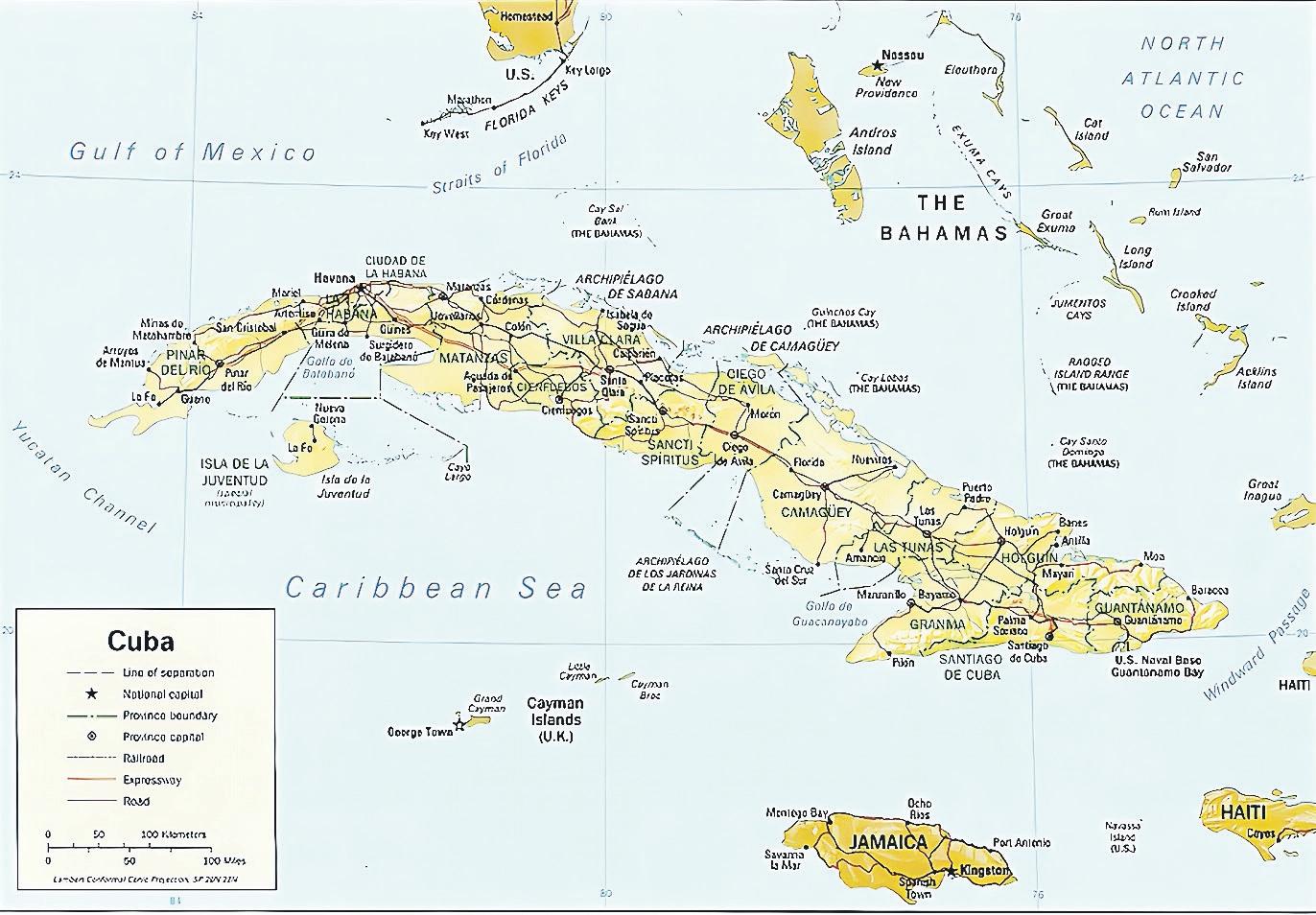
the motors and limped towards Nassau and were rescued. In December 1921 the steam tanker F. D. asche had to be towed from Bahama Banks to the United States; fortunately, Captain McKenzie and the full crew of 20 were saved. a century ago, was a busy time for wrecks in The Bahamas. In april of 1925 an american brig went ashore with its cargo of lumber lost. a few months later, on July 7, the steamer Naut Gwynaut bound from New york to Cardenas Cuba had to be salvaged by Bahamian wreckers, who the captain paid $7,500. In probably the same storm during May of 1925 a Spanish ship laden with cotton was disabled on the Great Bahama
Banks but managed to resume its course. In May of 1925 the British 900-ton ship Duke go aground on the Bahamas Banks, with 900 of 4,000 of the ship’s bales of cotton saved by Bahamian wreckers.
The sailing brigantine Warcaller was on its way south from Riding Rock, Grand Bahama on July 4, 1925, when it grounded at the Orange Cays on the Saint Nicholas Channel. In april 1925 a packet sailing ship from Philadelphia to Mobile in the US Gulf went ashore in Bahamas and was also taken off by wreckers. When the navy coal ship Mars grounded on the Bahamas Bank early in June, 1931, with the result that the US Navy battleship USS Nebraska and two US Navy tugs were ordered
to it’s aid and to pull it off. In June of 1929 the Munalbro, an american freighter, grounded at Mucaras Reef, at Diamond Point, east of Cay Lobos, and was freed and towed to Key West the same week. In 1975 the Panamanian motor ship Mimi, built in 1961 and 499 tons, wrecked at Cay Lobos. In 1990 the motor ship Melinda D. hit Guinchos Cay on the Great Bahama Bank and foundered. Built in 1962, the Honduran diesel cargo ship was 395 tons. We see that along the unpopulated yet massive southern border of The Bahamas, light blue on ‘our’ side, and deep dark blue on the channel side where
world trade passes, hardly ruffling The Bahamas between Haiti and the Florida Cays, there have been enough wrecks to stir Cuban salvage activities. Between the wolf (Lobos) the winch (Guinchos), the laundresses (Labanderas), the pigs (Cochinos Banks), the pottery or the plants (Mucaras), and the oranges (as in the cays), there is little but vast expanses of shallow ocean water. The best-named of the rocks lining this passage, is probably the Magallanes Bank, assuming it pays homage to the Straits of Magellan in South america, connecting the atlantic and Pacific Oceans.
It takes 66 days to form a good habit and a lifetime to break a bad one, or so it feels.
How researchers determine the 66 days is beyond me, but they have ways and I saw it online so it must be true because it appeared in so many places, though most attributed it to the same lab in the UK. What piqued my interest in an objective look at how we form and how we break habits is probably not what you are thinking – I am not trying to kick an unhealthy habit or force myself to develop a good one like going to the gym instead of finding excuses not to. trust me, I have no intention of going to the gym. I did that for decades and those days of staring in a mirror hoping the image will miraculously improve as I battle for glory on a treadmill are well over.
I have done my time. today, my workout routine looks more like eyes scooting left to right over the pages of a good book, gently applying paint to a wall of wood on a Saturday while listening to music or my daily early morning swim.
Age does come with certain benefits – and a lot of self-forgiveness.
So not too surprising in that what piqued my interest in the subject of habits was a book I happened to pick up because someone told me it was Warren Buffett’s favourite book and one of my lifelong habits is listening to other people’s recommendations without researching before acting. As I consider the implications of that, I realize how reckless that habit could be. But nevertheless, back to the book which, as it turns out, is not on Warren Buffett’s favourite book list, but it is now on mine. the book is called Atomic Habits and it is by an author named James Clear. His name is a dead giveaway, though I suspect it was merely a coincidence. His message is clear and straightforward. Habits are not what you do, they are
“Why would someone smoke if they knew it increases the risk of lung cancer? Why would someone overeat if they know it increases their risk of obesity? Why would someone have unsafe sex when they know it can result in sexually transmitted disease?”
By Diane Phillips
the aftermath and result of the systems you create to do things, the tiny pieces that cobbled together create the pattern of your behaviour. Scientists tell us that most of our habits and beliefs are formed by the age of seven, though there is some evidence that it is later – two years later, age nine. Personally, I find either of those options a bit frightening, but so be it, because the whole purpose of exploring the subject is learning how best to alter them at any age. If we start out with the why we have habits question, it makes thinking about them a lot easier. Habits are lifesavers. Without them, we would have to stop, think, ponder, query alternatives and make a decision before we made any single move. If we were not in the habit of going to bed at night, we would have to think about how to handle the night. If we were not in the habit of grabbing our
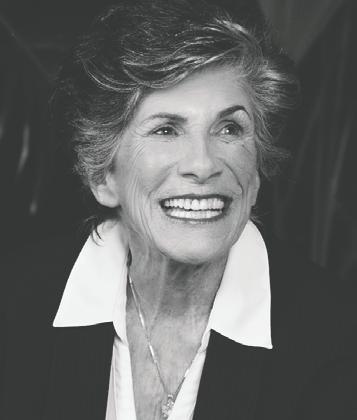
car keys before we got to the front door, we would have to stop and ponder what to do to make our car work. Habits are the greatest savers of time we know. they become an ingrained part of our everyday behaviour, turning off the light when we leave a room or turning off the tV when we leave for work, flipping on the radio to hear the music, adjusting our earbuds to drown out the conversation around us. Habits make a day flow with the least friction. Ignore the good, productive habit – turning off the light or tV as we leave the house -- and we subconsciously prick our conscience, knowing we have traded slackness and we pay the passing mental price. We traded thoughtfulness for something lesser and our brain is paying us back by sending a signal of reprimand. But back to our friend, the author, James Clear. Clear looks at habits and habit formations not in


terms of long-range goals which can be discouraging but in the building blocks, one atom at a time, in the systems we create. He uses the concept of atoms because of the miniscule size, an atom being the smallest particle and while we have all grown up with the concept of taking baby steps before we leap, Clear treats it in a way that makes such sense and provides so many examples it is hard to resist following him. Maybe that is why the book has sold more than 20 million copies in five years or why folks around the world read his newsletter or tune in to his blog. Victims of our systems
In the simplest terms, he tells us we are authors – and victims – of our own systems. Our lives are made up of minute-byminute atoms of actions and ideas. We go on a diet and say we want to lose 10 pounds in two months. An ambitious goal, but doable with a certain level of commitment. So for the first few days, we watch everything we eat. But then one day we are with friends and everyone is having dessert and we think, one little piece of guava duff won’t kill me, and before we know it, we start slowly slipping, forgiving ourselves for a little discretionary act that moves us farther away from our goal until we reach a point somewhere in that two month period where we give up altogether, defeated, maybe promising ourselves we would start again ‘after the holidays or when the timing is better. We are so good at excuses. the problem, says Clear, is not the goals we set. It is the systems we use. He argues that if we adapt the one percent per day system, we will glide right into our goal without experiencing the struggle. “You do not rise to the level of your goals, you fall to the level of your systems,” he says. If we adopt the one percent rule, and we aim to achieve one percent, to improve our vocabulary by one percent, to reduce our
spending by one percent, to limit our sugar intake by one percent, and we repeat one percent per day, eventually – and faster than we expected probably – we will have a substantially better vocabulary, more money in savings and will be pleasantly surprised when we step on a scale. Clear did not start out to become a guru of habits. All he wanted to do was to play baseball professionally. A freak accident when he was in the 10th grade left him in a coma clinging to life. Even when he regained consciousness, with an eyeball that had been knocked out of its socket and swelling in the brain, it would be months learning how to walk again and the better part of a year before he could drive a car. A few years later, he did make it onto a college baseball team, though at the bottom of the roster and it was there he learned the value of building a life by making small changes in his habits – what he called “a long series of small wins and tiny breakthroughs.”
Small doses, big changes
In the midst of the plethora of information and books and blogs about how to teach good habits to young children – critical in the Bahamas where so many young people struggle on a daily basis and cannot seem to find a straight path to a good life – in the midst of all of the information out there, Clear’s Atomic Habits stands out. It stands out because it gives us the prescription we need, small doses make for big changes. And he asks the right questions, “Why would someone smoke if they knew it increases the risk of lung cancer? Why would someone overeat if they know it increases their risk of obesity? Why would someone have unsafe sex when they know it can result in sexually transmitted disease?”
It is all about how the brain processes rewards and it is a lot easier to feel a sense of reward when
the decision is a small one and the reward or consequence is immediate. Avoid the one piece of guava duff or the cigarette or the moment of unsafe sex and the brain rewards you for doing so. You feel good about yourself, even if it is just this one time, one moment, one dessert you pushed away, resisting the temptation and inadvertently sending a signal to the brain that triggers a reinforcement that when repeated begins to form a habit. A single small gesture, a single good habit enacted, and the feeling is real – an immediate positive reward that makes it easier to turn down the temptation next time. the brain loves a reward so the easier we make it to reward ourselves with a quick win – the one percent -- the better we feel and the more likely we are to repeat that gesture or act. “the costs of your good habits are in the present,” says Clear. “the costs of your bad habits are in the future.”
Imagine how much easier it would be to form a good habit or break a bad one if we thought of our lives as the end product of an assembly line of our daily habits. By switching one mechanism in that assembly line, then repeating the action until it became habitual – one percent at a time, over and over again -– think what we could achieve over time. transformation could be an atomic habit away. For the man who lives in an abandoned car, the single small habit toward a life away from homelessness may be as simple as a shower. For those of us with a roof over our heads, the reward of a good habit may be something we do for ourselves, saying no to the guava duff even if Grammie made it, or taking it and offering it later to the homeless man in the wheelchair on the corner. Either way, the brain will send a signal, a reward. You done good. One percent at a time till the next time.